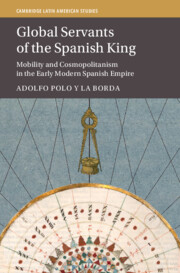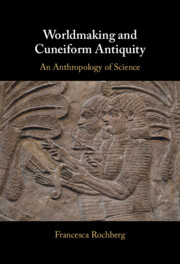Refine search
Actions for selected content:
103 results
Epilogue
-
- Book:
- Zola's Dream
- Published online:
- 07 August 2025
- Print publication:
- 21 August 2025, pp 252-269
-
- Chapter
- Export citation
11 - The Limits of All-under-Heaven
- from Text 11 - Subordinating Non-Chinese
-
-
- Book:
- Chinese Statecraft
- Published online:
- 17 July 2025
- Print publication:
- 31 July 2025, pp 178-192
-
- Chapter
- Export citation
7 - Political Legitimacy: From the National to the International
- from Part III - The Question of Legitimacy at the International Level
-
- Book:
- The Law and Politics of International Legitimacy
- Published online:
- 14 July 2025
- Print publication:
- 24 July 2025, pp 101-120
-
- Chapter
- Export citation

Zoroastrianism and Contemporary Philosophy
-
- Published online:
- 17 July 2025
- Print publication:
- 07 August 2025
-
- Element
-
- You have access
- Open access
- HTML
- Export citation
The Power to Kill Life Itself: Michel Foucault, Biopolitics, and the Political Challenge of Human Extinction
-
- Journal:
- Perspectives on Politics , First View
- Published online by Cambridge University Press:
- 20 March 2025, pp. 1-16
-
- Article
-
- You have access
- Open access
- HTML
- Export citation
Subliminal influence on generosity
-
- Journal:
- Experimental Economics / Volume 20 / Issue 3 / September 2017
- Published online by Cambridge University Press:
- 14 March 2025, pp. 531-555
-
- Article
- Export citation
2 - Definition of the Girl Child
-
- Book:
- The Status of the Girl Child under International Law
- Published online:
- 06 March 2025
- Print publication:
- 13 March 2025, pp 47-76
-
- Chapter
- Export citation

Global Servants of the Spanish King
- Mobility and Cosmopolitanism in the Early Modern Spanish Empire
-
- Published online:
- 20 February 2025
- Print publication:
- 27 February 2025
E.L. Mascall and the Great Divorce: Human Agency and the Eschaton
-
- Journal:
- Journal of Anglican Studies / Volume 22 / Issue 2 / November 2024
- Published online by Cambridge University Press:
- 13 January 2025, pp. 573-590
-
- Article
-
- You have access
- Open access
- HTML
- Export citation

Worldmaking and Cuneiform Antiquity
- An Anthropology of Science
-
- Published online:
- 09 January 2025
- Print publication:
- 09 January 2025
The Entire Cosmos’ Voluntary and Involuntary Homage to Jesus as Lord. An Investigation into the Scope and Background of Philippians 2.9–11 in Psalm 148 and Isaiah 45.20–5
-
- Journal:
- New Testament Studies / Volume 71 / Issue 1 / January 2025
- Published online by Cambridge University Press:
- 07 August 2025, pp. 64-79
- Print publication:
- January 2025
-
- Article
-
- You have access
- Open access
- HTML
- Export citation
‘Hell? Yes!’ Moorean reasons to reject three objections to the possibility of damnation
-
- Journal:
- Religious Studies , First View
- Published online by Cambridge University Press:
- 18 December 2024, pp. 1-13
-
- Article
-
- You have access
- Open access
- HTML
- Export citation
6 - A Global Win–Win Model for Development
-
- Book:
- Relocating Development Economics
- Published online:
- 05 December 2024
- Print publication:
- 12 December 2024, pp 130-150
-
- Chapter
- Export citation
Chapter 10 - Romantic Poetry and Constructions of Indigeneity
-
-
- Book:
- The Cambridge Companion to Romanticism and Race
- Published online:
- 21 November 2024
- Print publication:
- 28 November 2024, pp 168-185
-
- Chapter
- Export citation
Introduction to Volume IV
-
-
- Book:
- The Cambridge History of Rights
- Published online:
- 22 January 2025
- Print publication:
- 28 November 2024, pp 1-12
-
- Chapter
- Export citation
18 - Isaiah in the New Testament
- from Part IV - Afterlives of the Book of Isaiah
-
-
- Book:
- The Cambridge Companion to the Book of Isaiah
- Published online:
- 08 November 2024
- Print publication:
- 21 November 2024, pp 297-309
-
- Chapter
- Export citation
12 - Using History in Latin America
- from Part II - The Historiography of International Law
-
-
- Book:
- The Cambridge History of International Law
- Published online:
- 06 December 2024
- Print publication:
- 21 November 2024, pp 378-427
-
- Chapter
- Export citation
9 - Universal Grace
-
- Book:
- Karl Barth on Religion
- Published online:
- 14 November 2024
- Print publication:
- 21 November 2024, pp 159-188
-
- Chapter
- Export citation
1 - The Child and Human Rights
-
- Book:
- Child Rights, Legal Theory and Social Advocacy
- Published online:
- 07 November 2024
- Print publication:
- 21 November 2024, pp 7-29
-
- Chapter
- Export citation
2 - Universalism as a State Tradition in Norway and Its Impact on Language Policy Choices
- from Part I - Routes of Change
-
-
- Book:
- States of Language Policy
- Published online:
- 14 November 2024
- Print publication:
- 21 November 2024, pp 29-48
-
- Chapter
- Export citation
